 How Often Should Preventative Drain Maintenance Be Performed
How Often Should Preventative Drain Maintenance Be Performed
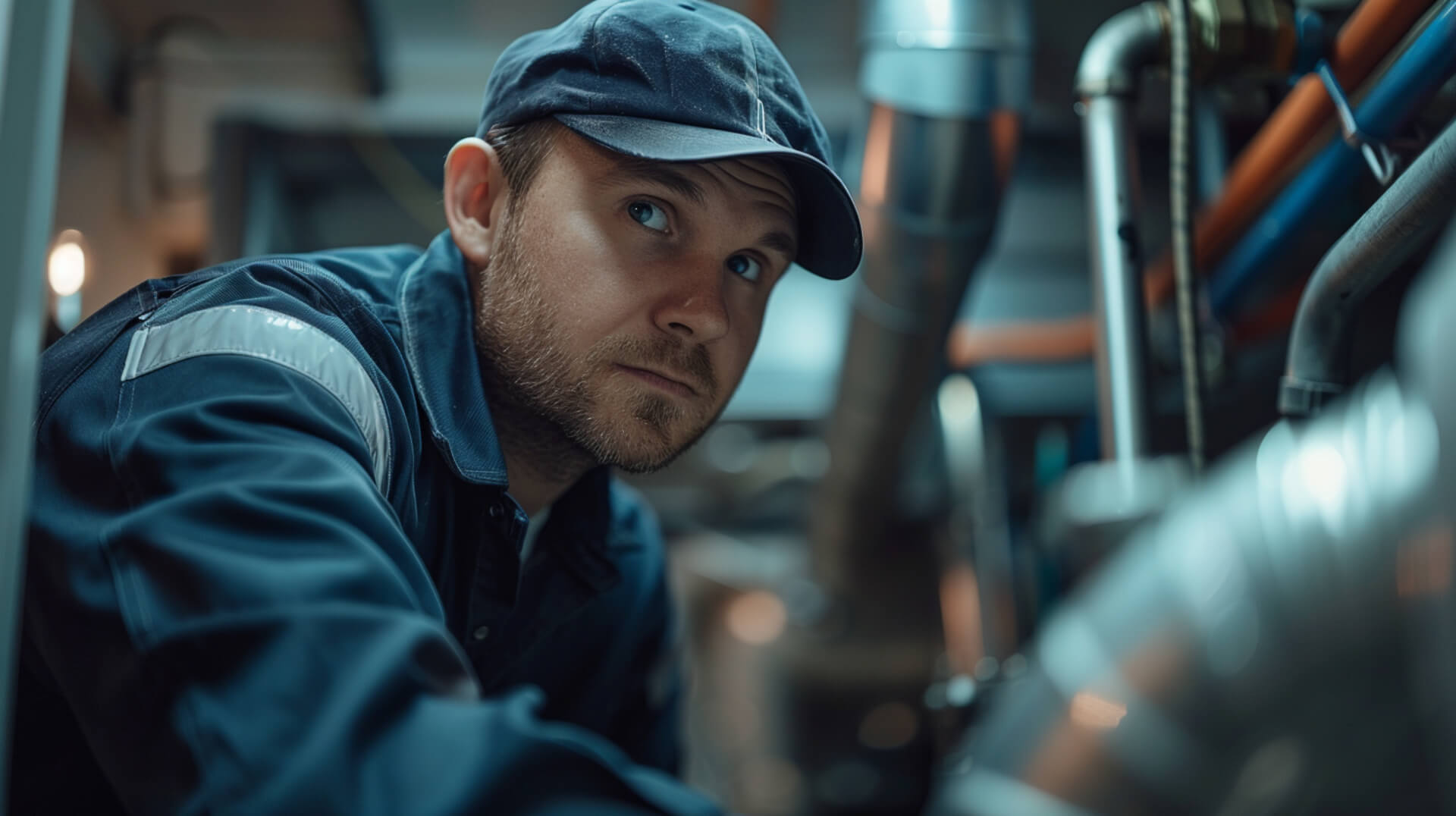
Preventative drain maintenance encompasses a range of practices designed to keep plumbing systems functioning optimally. This proactive approach includes regular cleaning, inspections, and the use of strainers to catch debris. The objective is to maintain the health and efficiency of the plumbing, thereby extending its longevity and preventing costly repairs.
The Significance of Preventative Maintenance
Preventative maintenance is essential for avoiding blockages and ensuring that plumbing systems operate smoothly. By addressing potential issues before they escalate, you can avoid disruptions and maintain a hygienic environment. This is particularly important in settings where sanitation is paramount, such as in food service or healthcare facilities.
Impact on System Longevity and Efficiency
Regular maintenance not only prevents immediate problems but also contributes to the overall longevity and efficiency of plumbing systems. Clean and well-maintained drains are less likely to suffer from corrosion, leaks, and other issues that can compromise their integrity and function.
Beneficiaries of Preventative Maintenance
Everyone benefits from preventative drain maintenance. Homeowners, business owners, and facility managers can all avoid the inconvenience and expense of emergency plumbing services. By investing in regular maintenance, you ensure that your plumbing systems remain reliable, efficient, and free from unexpected failures.
Understanding the Frequency of Preventative Maintenance
Determining the optimal schedule for preventative drain maintenance is influenced by a variety of factors. Property owners should consider the following elements to ensure the health and efficiency of their plumbing systems:
Factors Influencing Maintenance Frequency
- Usage Patterns: High-traffic areas typically require more frequent maintenance due to increased waste and debris.
- Environmental Conditions: Regions with hard water or high humidity may necessitate more regular maintenance to prevent mineral buildup and corrosion.
- Type of Premises: Commercial establishments, especially those with kitchens, might need maintenance more often than residential properties due to the presence of grease and food particles.
Adjusting Maintenance Schedules
It is essential to tailor maintenance frequency to the specific needs of your plumbing system. For instance, if you’re managing a facility with heavy usage or in an area with hard water, your maintenance checks might need to be more frequent.
Scheduling Your Next Maintenance Check
- Regular Assessments: Schedule at least an annual check-up. However, for commercial properties or homes with high usage, a semi-annual or quarterly schedule may be more appropriate.
- Monitoring: Keep an eye on the performance of your drains. If you notice signs of slowing or clogging, it may be time for an inspection.
- Professional Advice: Consult with a professional to get personalised advice based on the specific characteristics of your property and usage patterns.
By understanding and responding to these factors, you can maintain a proactive approach to drain maintenance, ensuring the longevity and reliability of your plumbing systems.
The Role of Environmental Factors in Maintenance Scheduling
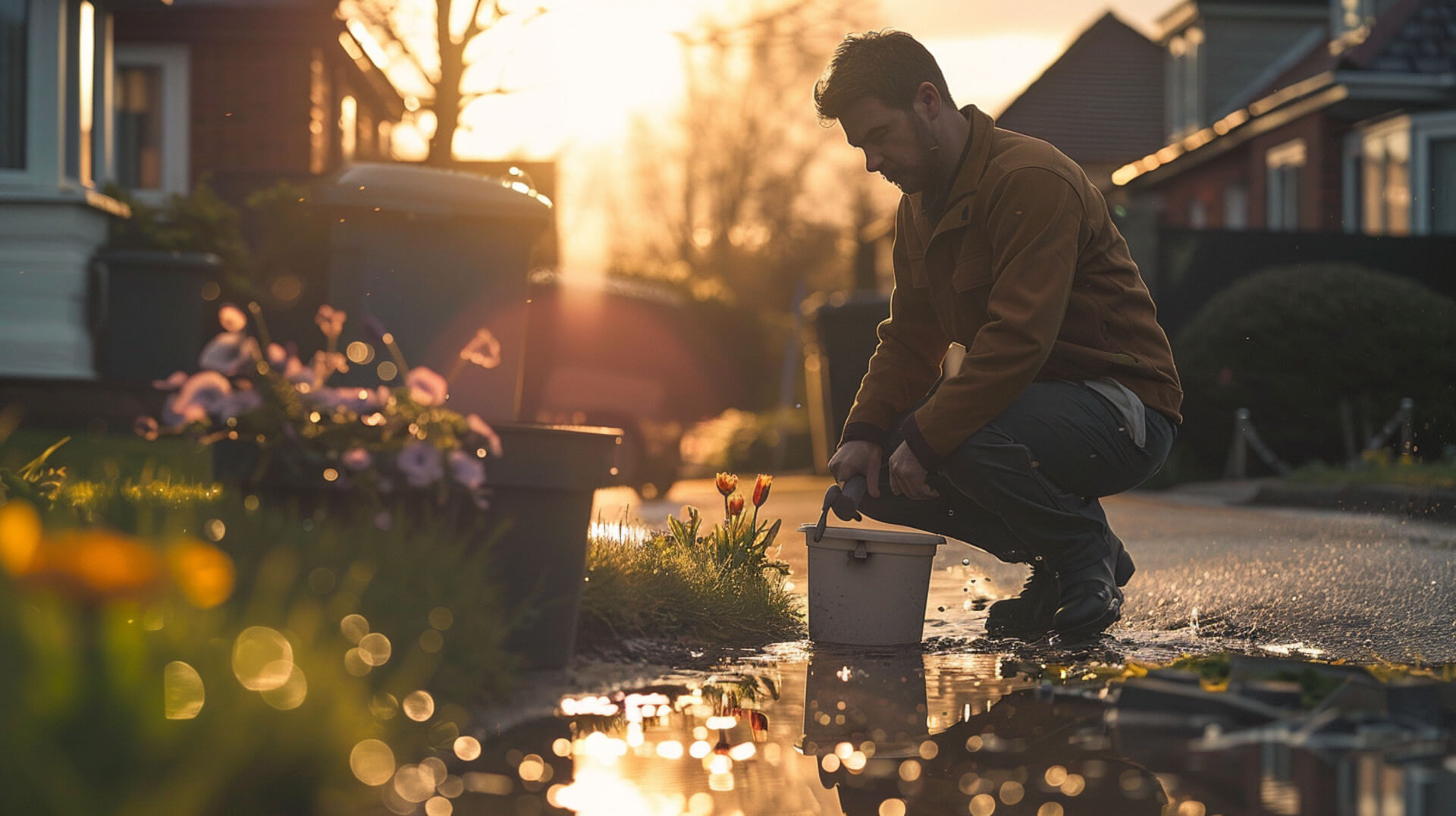
Environmental conditions play a significant role in the maintenance of drain systems. Understanding how these factors impact your plumbing can guide you in establishing an effective maintenance schedule.
Influence of Hard Water and Humidity on Drains
- Hard Water: High mineral content in water can lead to deposits and scaling inside pipes, potentially causing blockages and reducing water flow.
- Humidity: Excessive moisture can accelerate pipe corrosion and mould growth, which may compromise the integrity of the drainage system.
Adapting to Environmental Challenges
Maintenance schedules should be flexible to accommodate the unique demands of your environment. For example, areas with hard water may require more frequent descaling to prevent long-term damage.
Recognising Urgent Maintenance Signs
Certain environmental indicators suggest an immediate need for maintenance:
- Mineral Buildup: Visible limescale on fixtures is a clear sign that hard water is affecting your plumbing.
- Corrosion and Mould: If you notice corrosion on pipes or mould growth, it’s time to schedule maintenance to address these issues before they worsen.
By staying attuned to these environmental factors and adjusting your maintenance schedule accordingly, you can help ensure the longevity and reliability of your drain system.
Commercial vs. Domestic Drain Maintenance Needs
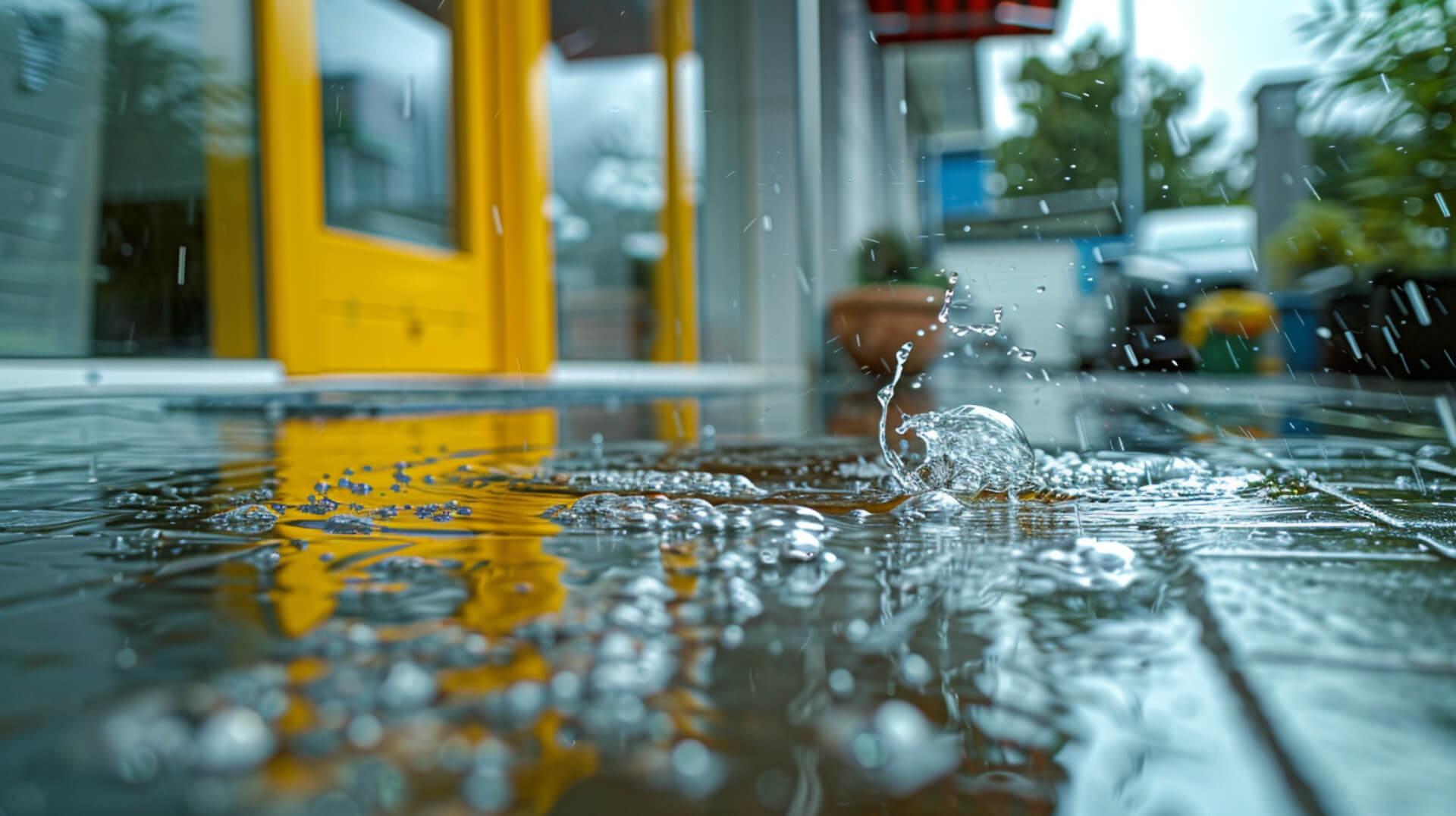
Understanding the differences between commercial and domestic drain maintenance is crucial for property owners and managers. Each setting has unique requirements that influence the frequency and type of maintenance needed.
Distinctions in Maintenance Requirements
Commercial properties often face more stringent health and safety regulations, which necessitate regular maintenance checks. The high volume of waste, particularly in businesses like restaurants with grease traps, requires a more robust maintenance plan.
Grease Traps and Maintenance Frequency
- Grease Management: Commercial kitchens use grease traps to prevent fats, oils, and grease from entering the drainage system. These traps must be cleaned regularly to function correctly and comply with regulations.
- Increased Frequency: Due to the heavy usage of commercial drains and the presence of grease traps, commercial properties typically require more frequent maintenance than domestic homes.
Responsibility in Multi-Tenant Buildings
In commercial buildings with multiple tenants, the responsibility for maintaining the drains often falls on the property owner or manager. It is their duty to ensure that the plumbing systems are well-maintained and functioning efficiently to prevent disruptions to business operations.
By recognising the specific needs of commercial versus domestic drain systems, you can establish a maintenance schedule that keeps your plumbing in optimal condition and avoids costly repairs.
Implementing Preventative Measures to Reduce Maintenance Needs
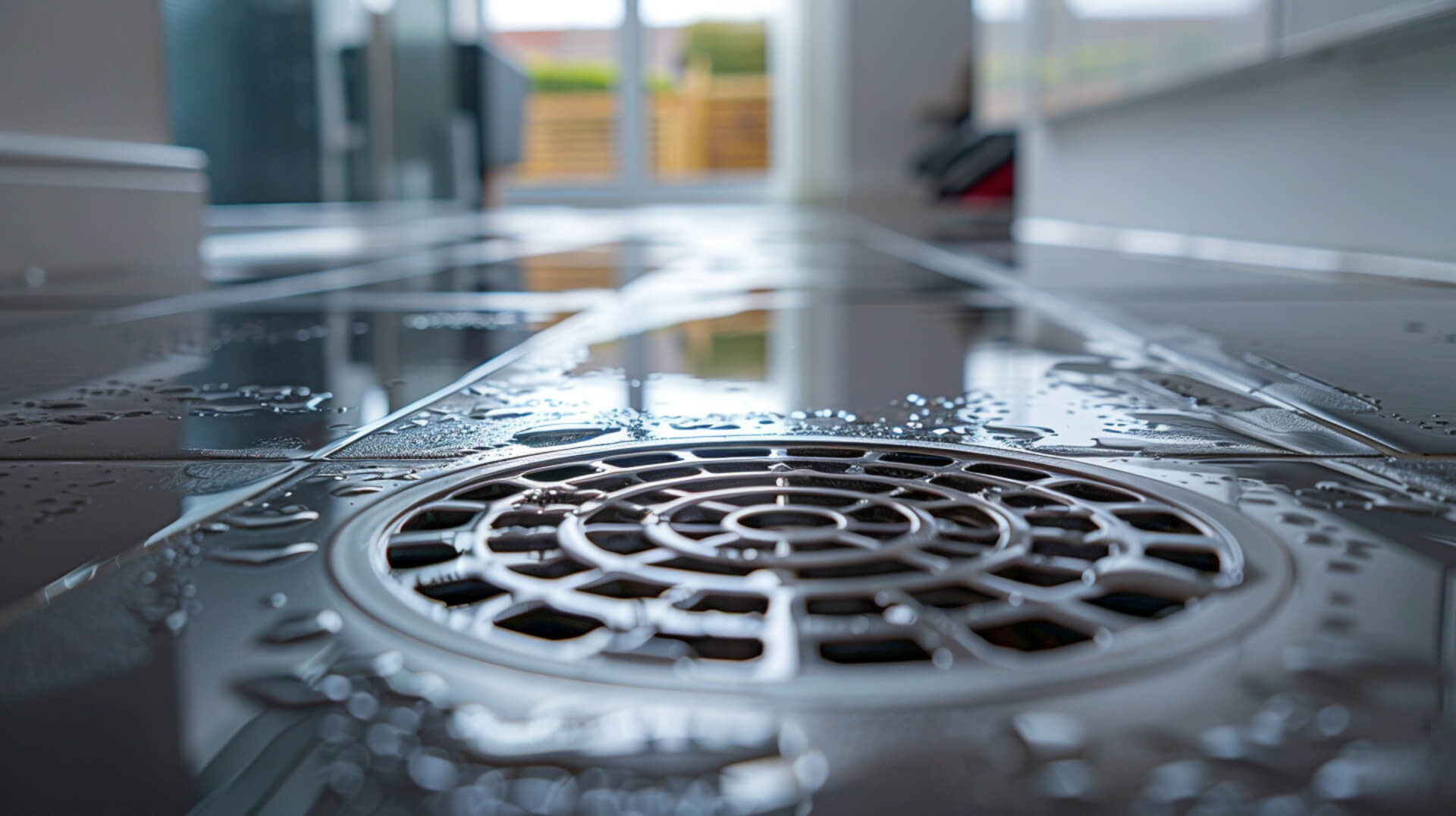
Preventative measures are key to maintaining drain health and extending the time between professional maintenance services. By adopting simple, yet effective practices, property owners can significantly reduce the likelihood of blockages and other common drain issues.
Effective Use of Strainers and Mindful Disposal
- Strainers: Placing strainers in sinks and showers can trap debris that would otherwise contribute to clogs.
- Mindful Disposal: Being conscious of what goes down the drain is crucial. Avoid disposing of oils, fats, and non-biodegradable items in the sink.
Regular Cleaning as a Preventative Strategy
- Routine Flushing: Regularly flushing drains with hot water can prevent the buildup of substances that cause blockages.
- Cleaning Agents: Use enzyme-based cleaners rather than harsh chemicals to maintain pipe integrity and avoid damage.
Tailoring Preventative Measures
Different types of properties may require specific preventative strategies:
- Domestic Homes: Focus on educating all household members about what should not be disposed of via the drains.
- Commercial Properties: Implement strict waste management protocols, especially in businesses that handle food and grease.
By integrating these preventative measures into regular maintenance routines, you can help ensure the efficient operation of your plumbing systems and potentially reduce the frequency of professional drain maintenance.
Recognising Urgent Drain Maintenance Signs
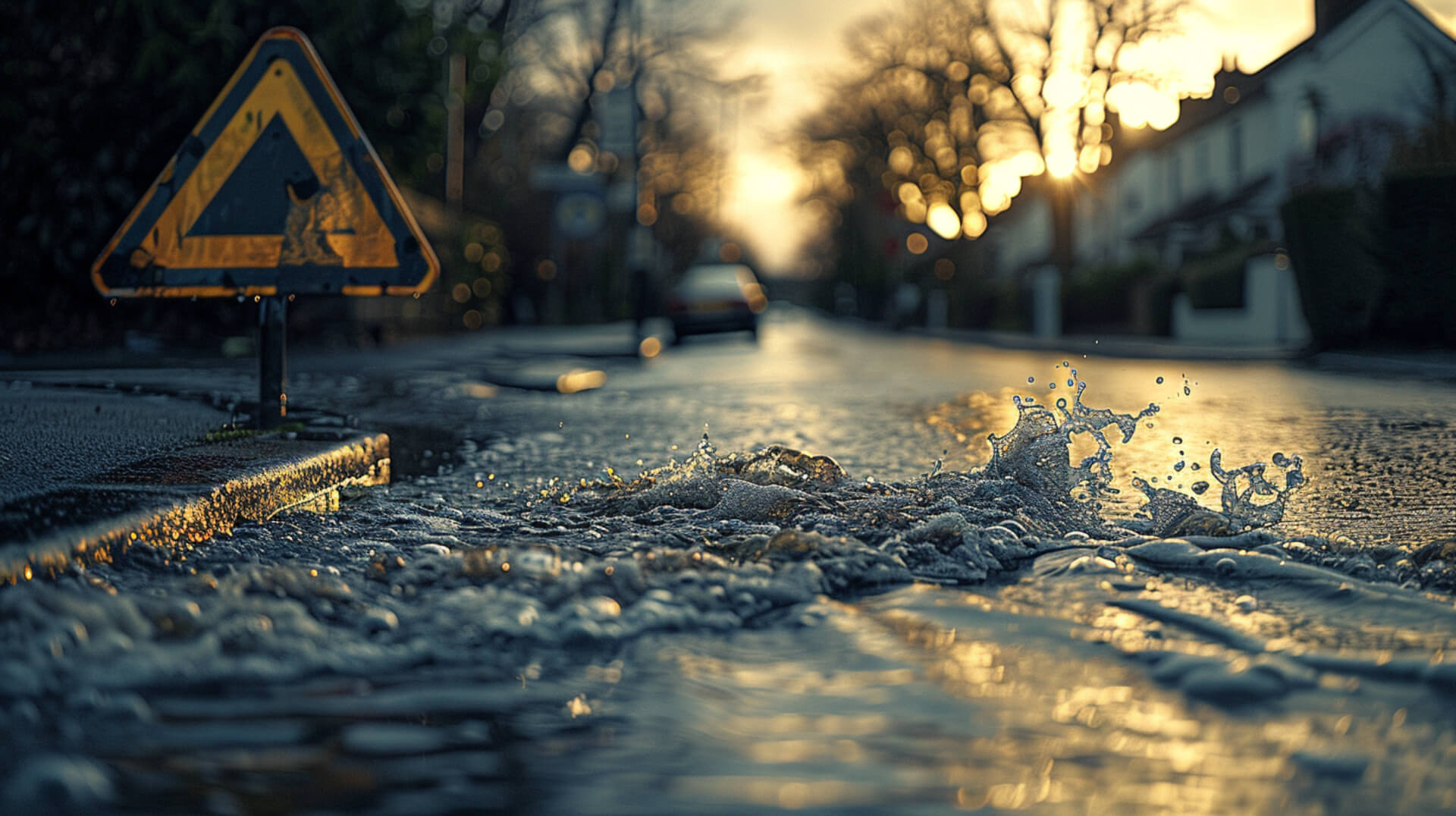
Being vigilant about the condition of your drainage system is crucial. Certain signs indicate the need for immediate attention to prevent more serious issues.
Early Indicators of Drain Blockage
- Slow Drainage: If water pools for longer than usual, this is often the first sign of a blockage.
- Unusual Noises: Gurgling sounds from your drains can suggest trapped air due to a clog.
- Foul Odours: Persistent bad smells emanating from drains might be a sign of accumulated waste in the pipes.
The Importance of Prompt Action
Ignoring these early warning signs can lead to more severe blockages or even damage to your plumbing system. Addressing these issues promptly can prevent costly repairs and maintain the efficiency of your drainage system.
Steps to Take When Signs Emerge
When you notice any of these signs, it’s advisable to:
- Consult a Professional: Contact a certified plumber or drain maintenance service for an assessment.
- Avoid DIY Solutions: While some blockages can be resolved with simple methods, others may require professional tools and expertise.
By recognising and acting on these signs quickly, you can ensure that your drainage system remains in good working order.
The Impact of Pipe Material on Maintenance Schedules
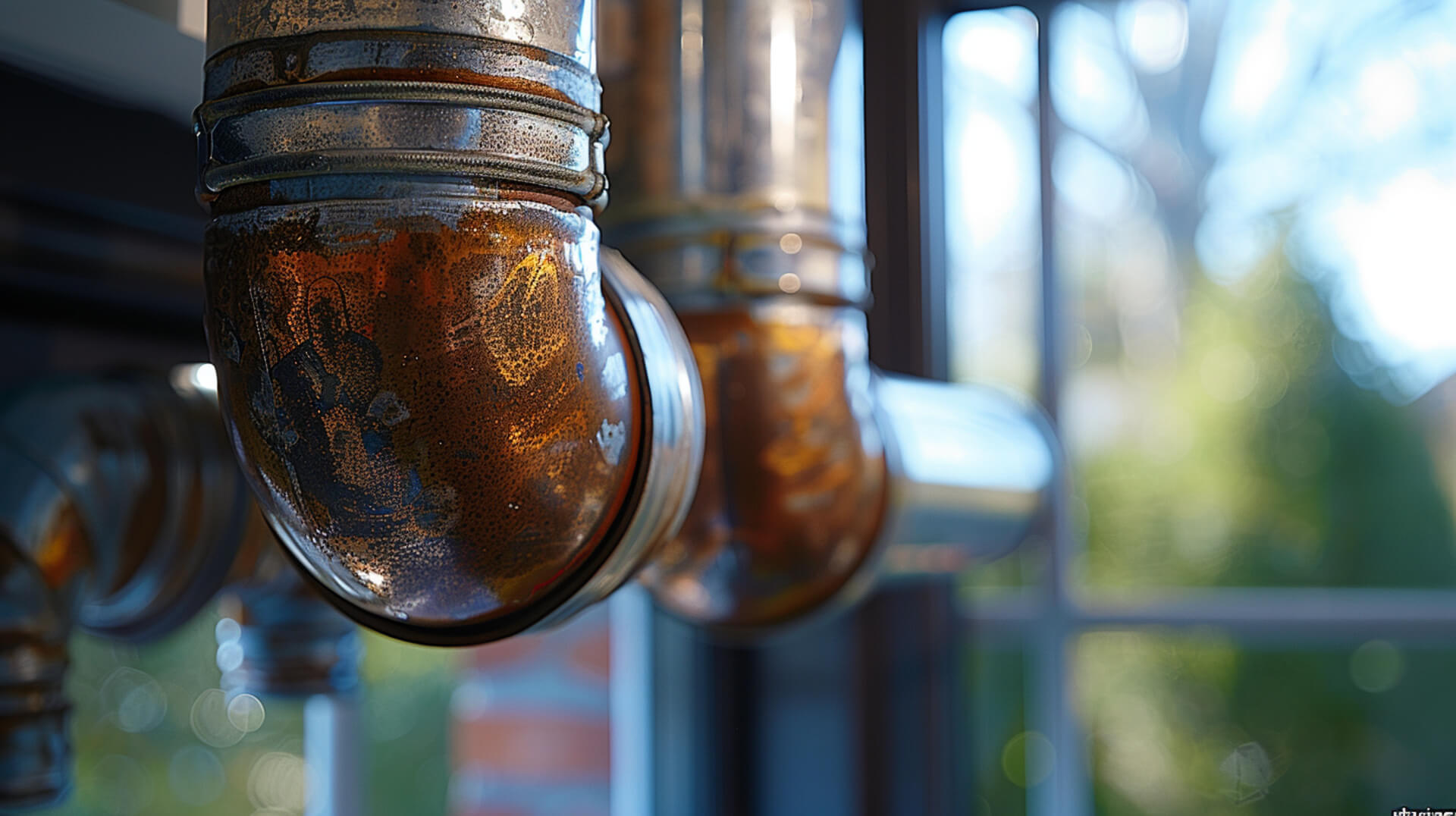
The material of your property’s pipes is a significant factor in determining the frequency of preventative drain maintenance. Different materials have varying levels of resistance to corrosion, buildup, and wear, which affects how often maintenance should be performed.
Maintenance Considerations for Different Pipe Materials
- Cast Iron Pipes: These are durable but prone to rust and corrosion over time. They typically require more frequent inspections to prevent blockages from rust buildup.
- PVC Pipes: Made from plastic, PVC pipes are less susceptible to corrosion but can be damaged by extreme temperatures and certain chemicals. They generally require less maintenance than cast iron.
Importance of Understanding Pipe Material
Knowing the type of pipes in your plumbing system is essential for creating an effective maintenance plan. It allows you to anticipate potential issues and schedule services accordingly.
Pipe Materials and Maintenance Frequency
- Least Frequent Maintenance: PVC and other plastic-based materials often require less maintenance due to their resistance to corrosion.
- More Frequent Maintenance: Older materials like cast iron may need more attention to prevent deterioration and ensure the system remains clear and functional.
By considering the material of your pipes, you can better gauge the maintenance needs of your plumbing system and avoid unexpected issues.
Professional Services for Comprehensive Drain Maintenance

When it comes to maintaining the health of your property’s plumbing system, professional services offer specialised tools and techniques that far surpass the capabilities of DIY methods.
Specialised Tools Used by Professionals
Professionals in drain maintenance utilise a range of specialised tools to ensure a thorough cleaning:
- Hydro-Jetting: A powerful method that uses high-pressure water to remove blockages and buildup within pipes.
- CCTV Inspection: Closed-circuit television cameras are employed to visually inspect the interior of drain pipes, identifying issues without invasive procedures.
Advantages of Professional Hydro-Jetting
Hydro-jetting is considered superior to DIY methods for several reasons:
- Effectiveness: It can clear out stubborn blockages and even tree roots that typical home remedies cannot.
- Safety: Professionals are trained to use these powerful tools without causing damage to pipes.
- Longevity: Regular hydro-jetting can prevent future clogs, extending the life of your plumbing system.
Who Should Opt for Professional Drain Maintenance?
- Property Owners: Especially those with older plumbing systems or frequent blockages.
- Business Owners: Particularly in the food service industry where grease buildup is common.
- Facility Managers: To ensure compliance with health and safety standards and prevent disruptive plumbing failures.
By choosing professional drain maintenance services, you ensure that your plumbing system receives the most effective care, reducing the likelihood of future issues and maintaining optimal functionality.
The Financial Implications of Neglecting Drain Maintenance

Regular preventative maintenance of drainage systems is not only a matter of functionality but also of financial prudence. Understanding the cost benefits and potential financial risks associated with drain maintenance can guide you in making informed decisions about your property’s plumbing care.
Long-Term Cost Benefits of Regular Maintenance
Regular maintenance can prevent the accumulation of debris and buildup that often leads to costly repairs. By investing in routine checks and cleanings, you’re likely to avoid the expenses associated with emergency plumbing services, which can be substantial.
Higher Costs Associated with Emergency Services
Neglecting regular maintenance can result in unexpected blockages or breakdowns, necessitating emergency service calls. These services often come with a premium price tag, especially if they occur during off-hours or require immediate attention.
Preventative Maintenance as a Cost-Effective Strategy
- Proactive Approach: Scheduling regular maintenance can identify and resolve issues before they escalate, thereby saving you money in the long run.
- Efficiency: A well-maintained system operates more efficiently, potentially reducing water bills and extending the lifespan of your plumbing infrastructure.
Optimal Maintenance Practices for Return on Investment
- Regular Inspections: Engage with professionals for periodic assessments to keep your system in top condition.
- Mindful Usage: Educate all users of your property on best practices to prevent unnecessary strain on your plumbing system.
By adhering to these practices, you can ensure that your drainage system remains functional and cost-effective over time.
Navigating Local Regulations and Maintenance Responsibilities
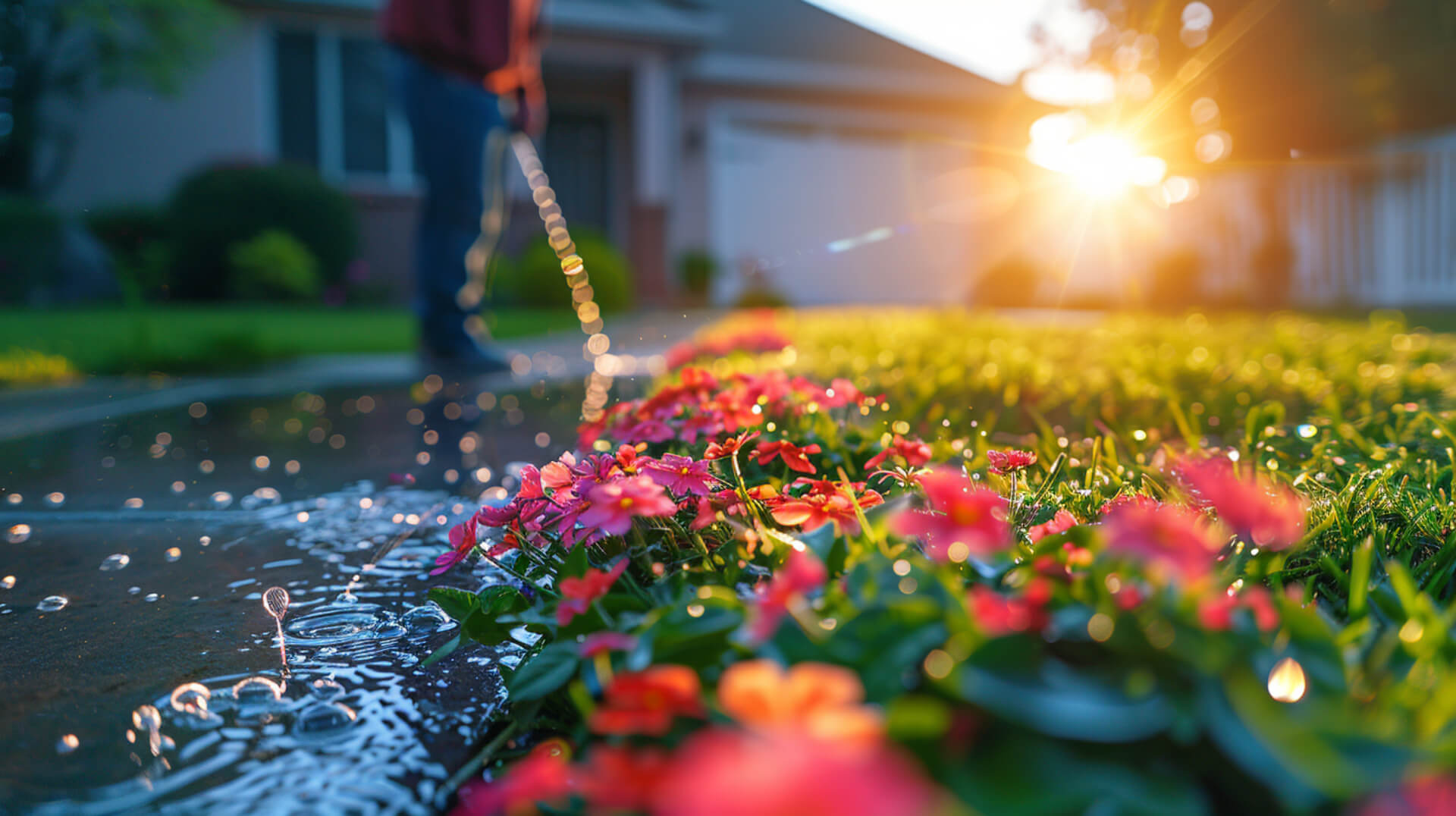
Understanding and complying with local regulations is essential for property owners when it comes to drain maintenance. These regulations can vary significantly depending on the location, and non-compliance may lead to legal issues or fines.
Comprehending Local Drain Maintenance Regulations
Local governments often have specific codes that dictate the proper maintenance of drainage systems. These can include:
- Frequency of Maintenance: Some regions require regular inspections and cleaning of drains, especially in commercial properties.
- Disposal Practices: There may be regulations on what substances can be legally disposed of through the drainage system.
Ensuring Compliance with Drain Maintenance Regulations
To ensure compliance, property owners should:
- Consult Local Authorities: Contact your local government or municipal office for the latest regulations regarding drain maintenance.
- Hire Qualified Professionals: Engage services from accredited companies that are familiar with local codes and can provide documentation of compliance.
The Importance of Maintenance Responsibility
- Avoiding Penalties: Understanding your responsibilities can help avoid penalties for non-compliance.
- Maintaining Property Value: Proper maintenance is also crucial for preserving the value and integrity of your property.
Guidance on Local Maintenance Regulations
For detailed guidance, property owners can:
- Seek Legal Advice: A legal professional can provide clarity on local regulations.
- Join Property Associations: These organisations often have resources and expertise to help navigate local codes.
By staying informed and proactive, you can ensure that your property’s drainage system is maintained in accordance with local regulations, safeguarding against potential legal complications.
The Importance of Regular, Proactive Maintenance
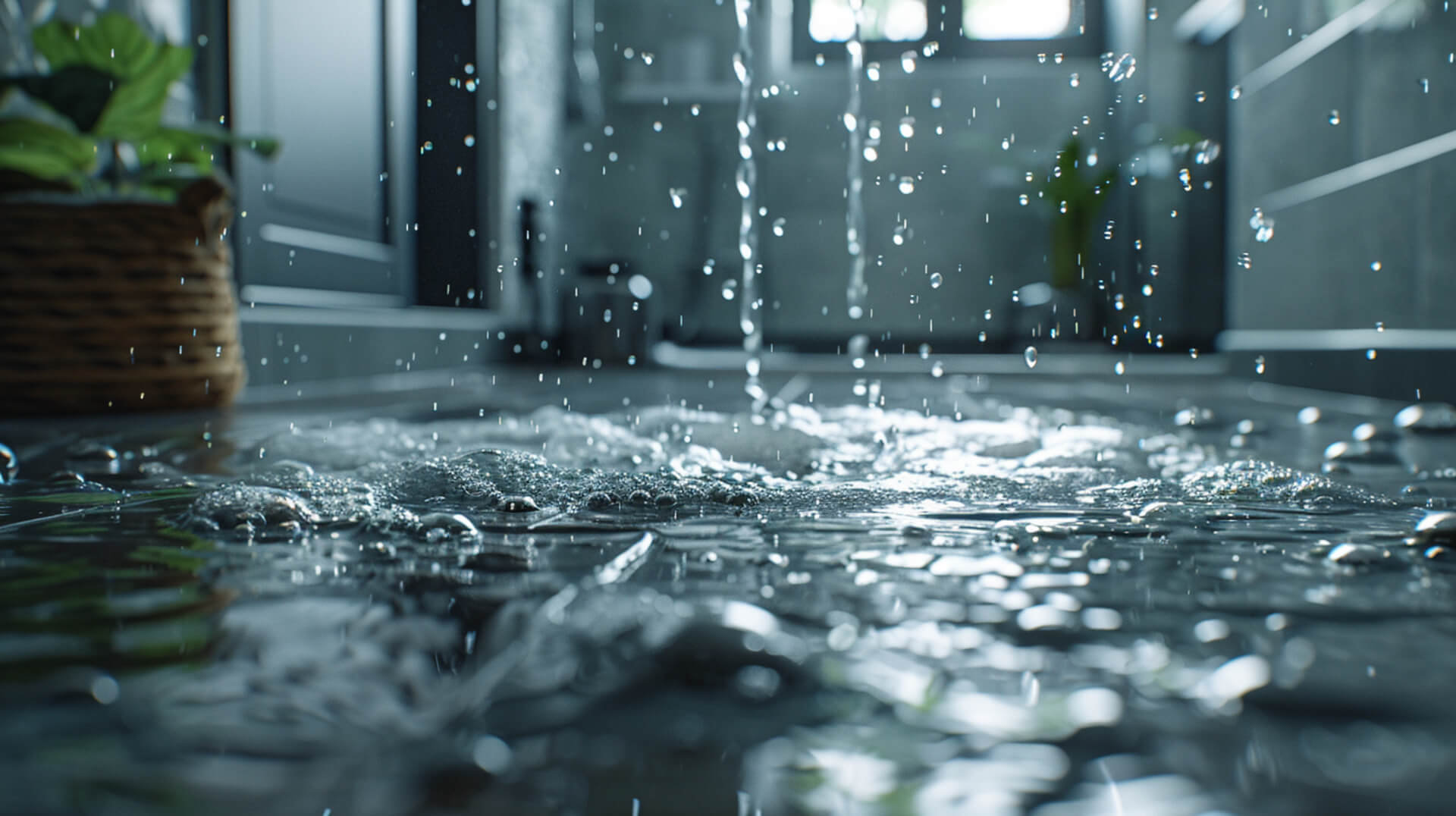
Adopting a proactive approach to drain maintenance is not only prudent but also cost-effective. Regular maintenance can help prevent the inconvenience and unexpected expenses associated with emergency plumbing situations.
Benefits of Proactive Maintenance
Proactive maintenance offers several advantages:
- System Efficiency: Regular cleaning and inspections ensure that your drainage system operates at peak efficiency.
- Cost Savings: By preventing major blockages, you can avoid the high costs associated with emergency repairs.
- Longevity: Routine maintenance can extend the life of your plumbing system, delaying the need for costly replacements.
Preventing Emergency Situations
Regular maintenance can identify potential issues before they escalate into emergencies:
- Early Detection: Small problems can be caught and addressed during routine checks.
- Avoiding Disruptions: By maintaining a clear and functional system, you reduce the risk of unexpected plumbing failures that can disrupt your home or business.
Effectiveness of Scheduled Maintenance Plans
A scheduled maintenance plan is more effective than reactive measures because it:
- Ensures Regularity: You’re less likely to overlook necessary maintenance when it’s scheduled.
- Provides Peace of Mind: Knowing that your drains are regularly checked by professionals can give you confidence in your plumbing system’s reliability.
Who Benefits from Proactive Maintenance?
Everyone benefits from proactive maintenance, especially:
- Homeowners: Protecting their investment and ensuring a comfortable living environment.
- Business Owners: Avoiding operational disruptions and maintaining a professional image.
- Facility Managers: Ensuring compliance with health and safety standards and preventing property damage.
By implementing a proactive maintenance schedule, you can enjoy a well-functioning plumbing system and avoid the pitfalls of neglect.
Key Takeaways for Effective Drain Maintenance
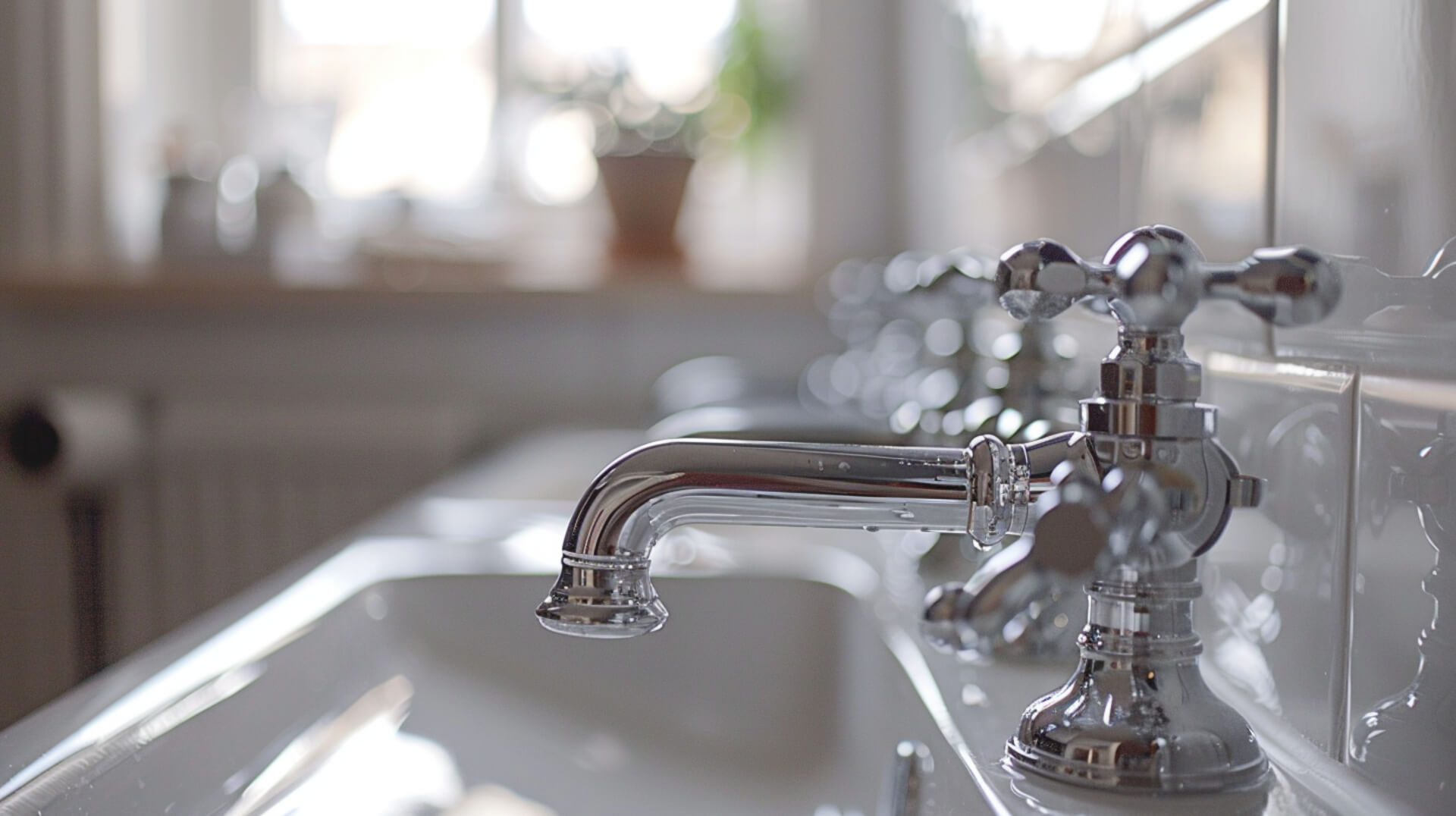
Preventative drain maintenance is a critical aspect of property management that ensures the functionality and longevity of plumbing systems. For property owners, business owners, and facility managers, understanding the importance of regular maintenance is key to avoiding costly repairs and ensuring efficient operation.
Enhancing System Efficiency and Reducing Costs
Regular maintenance practices are proven to enhance system efficiency and reduce the likelihood of expensive emergency repairs. By scheduling routine inspections and cleanings, you can keep your drainage system in optimal condition, which in turn can lead to reduced operational costs.
The Essential Role of Preventative Maintenance
Preventative maintenance is not just a routine task; it’s an investment in your property’s infrastructure. It helps maintain a clean and healthy environment, prevents property damage, and ensures that your plumbing systems serve you reliably for years to come.
Seeking Personalised Maintenance Advice
For tailored advice on maintenance frequency and practices:
- Consult Professionals: Reach out to certified plumbers or drain maintenance services for recommendations based on your specific needs.
- Stay Informed: Keep abreast of local regulations and industry standards to ensure your maintenance practices are compliant and effective.
By prioritising preventative maintenance and seeking expert guidance, you can maintain the integrity of your plumbing systems and protect your property investment.


